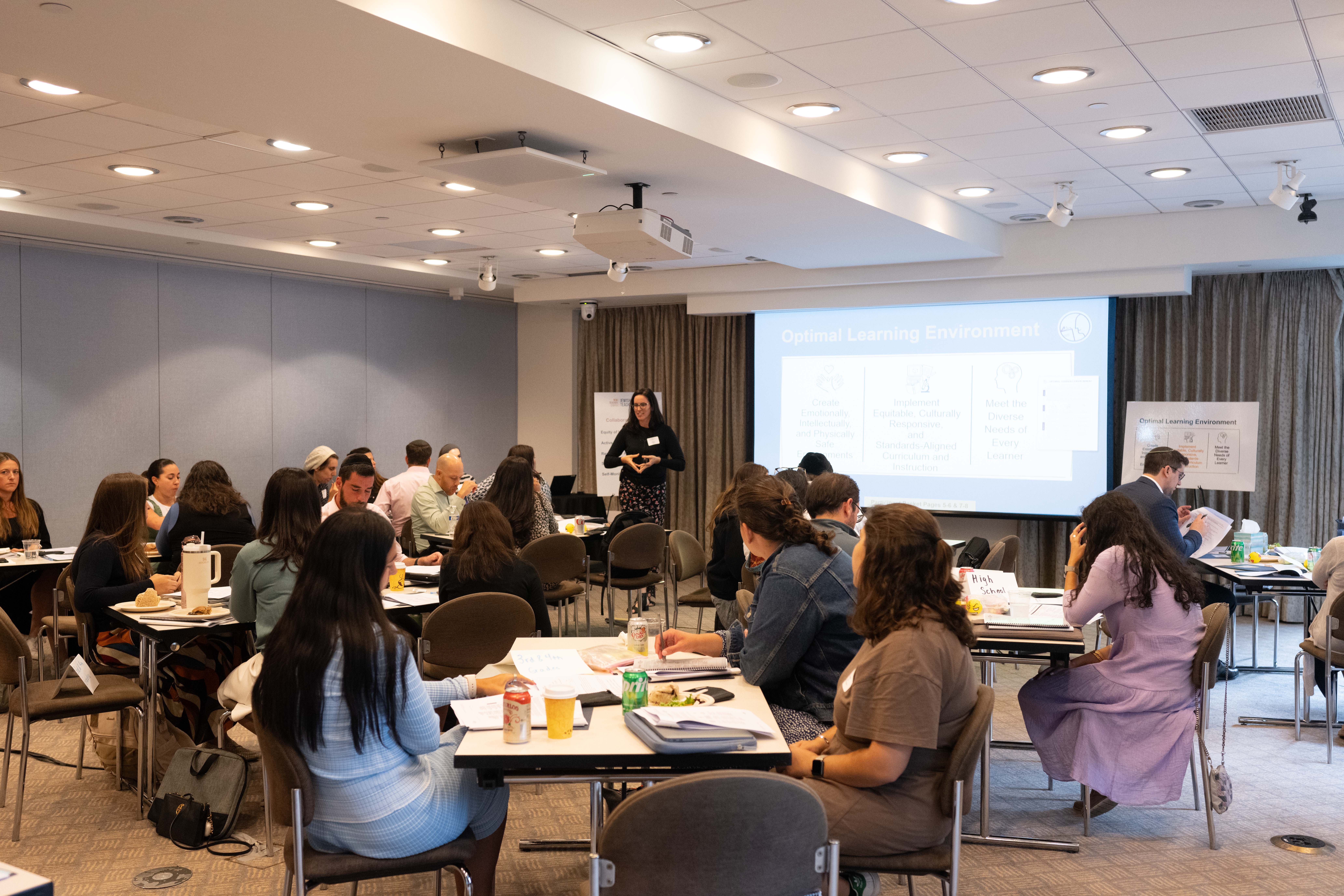While an educator shortage in Jewish day schools has been a topic of conversation for well over a decade, it has reached true crisis levels: Both new and seasoned teachers are leaving in droves and not being replaced by incoming talent, as people choose to enter other professions that offer more flexibility, less stress and higher pay. It is safe to say that recruiting, supporting and retaining excellent teachers are truly among the most urgent challenges facing Jewish day schools today.
I was honored to participate in the Jewish Day School Educators Pipeline Working Group from March to October 2023. This initiative, sponsored by Prizmah and the Jewish Education Innovation Challenge, was designed to take action and channel innovative ideas to address the shortage of Jewish day school educators. The Working Group drew on expertise from individuals across the entirety of the Jewish education field: day school educators and leaders; academics; informal Jewish educators; those in Jewish education–adjacent fields; representatives from central Jewish agencies; and organizations such as Jewish New Teacher Project (JNTP) of New Teacher Center that support the career development of Jewish day school educators.
Through my role as executive director of JNTP, I support beginning teachers and novice administrators, helping them get better faster so that they are more skilled, effective and confident, ultimately creating optimal learning environments grounded in instructional excellence. In order to cross-pollinate expertise across the various focus areas of the working groups, known as pillars, I was assigned to a pillar that focused on “Creating Working Environments for Success.” The group included Dr. Dan Glass, head of The Brandeis School in San Francisco; Lisa Klein, managing director, Jewish education, from the Jewish Federation of Greater Houston; Rebecca Rohr Ritter, head of teaching and learning at New York’s Shefa School; Rachel Levitt Klein Dratch, former director of education innovation at Prizmah; and me. Our goal was to identify barriers to successful working environments for educators and suggest solutions that would ultimately improve the educator pipeline.
What we concluded as a group as the key to creating successful working environments for teachers is what JNTP has known all along: Ongoing learning and opportunities for professional growth over time, in the context of consistent support in a positive work environment, leads to teacher success and satisfaction, which in turn leads to teacher retention.
Teacher Pipeline Crisis: The Challenges
As a partner of more than 230 Jewish day schools across North America over the past 20 years, JNTP has had a front seat to the unfolding pipeline crisis. Based on this experience, and supported by research, we believe that a leading indicator for retention is a teacher’s self-efficacy—the confidence that they are effective in the classroom. A recent article from JNTP’s parent organization, the New Teacher Center, explains that evidence suggests that poor self-efficacy is linked to higher teacher burnout and stress, which in turn leads to a higher rate of leaving the profession. The goal, then, is to help teachers have early success and gain confidence in their abilities, so that they have greater job satisfaction and evidence a stronger commitment to staying in the profession long term.





